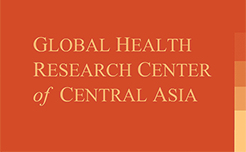BY ANA SINGH
Funded by the Open Society Foundations (2012-2013), the Wings of Hope project will test the feasibility and preliminary effects of the Women Initiating New Goals for Safety (WINGS) intervention, which was designed to increase the identification of intimate partner violence (IPV) and gender-based violence (GBV), and improve outreach to services among women drug users in Kyrgyzstan. On going research will be facilitated by the Global Health Center of Central Asia (GHRCCA) and two Local NGOS. Based at Columbia University, GHRCCA integrates a multidisciplinary team of faculty, scientists, researchers, and students committed to advancing solutions to health and social issues in Central Asia and the surrounding region.
This study also aims to build the capacity of local NGOs to collect systematic de-identified data on IPV/GBV and use the data to advocate for more effective policies and programs to redress the widespread problem. Activities will include the adaptation of an IPV/GBV screening, a brief intervention and referral service (WINGS intervention to Wings of Hope) using data collected from focus groups and key informants. Staff from two local NGOs in the capital of Bishkek will be trained to deliver the intervention, and collect systematic data using DatStat Management Systems.
The effectiveness of the intervention during this pilot will be evaluated as we examine organizational factors that impede or facilitate the delivery of intervention to inform a future larger scale implementation study. Formative work in Bishkek (Osha and Kara-Suu), Kyrgyzstan captured stories of extreme risk and alienation due to substance dependency, trauma, and resulting shame and secrecy related to gender-based violence. Focus group participants shared common stories of vulnerability both within intimate partnerships and from the authorities that are meant to protect and serve them. A university professor tearfully shared her personal experience as a victim of IPV and the assumed rule of secrecy, “We [in academia] are supposed to be immune to these kinds of problems.” Distrust and fear of reprisal following their abuse often keeps women seeking assistance from other women in the community.
By working directly with the community’s key stakeholders, GHRCCA has been able to simultaneously advocate for screening of gender-based violence within a new protocol being initiated in prenatal care settings, using a multidisciplinary team to serve women of child bearing age involved with substances.



Connect with us